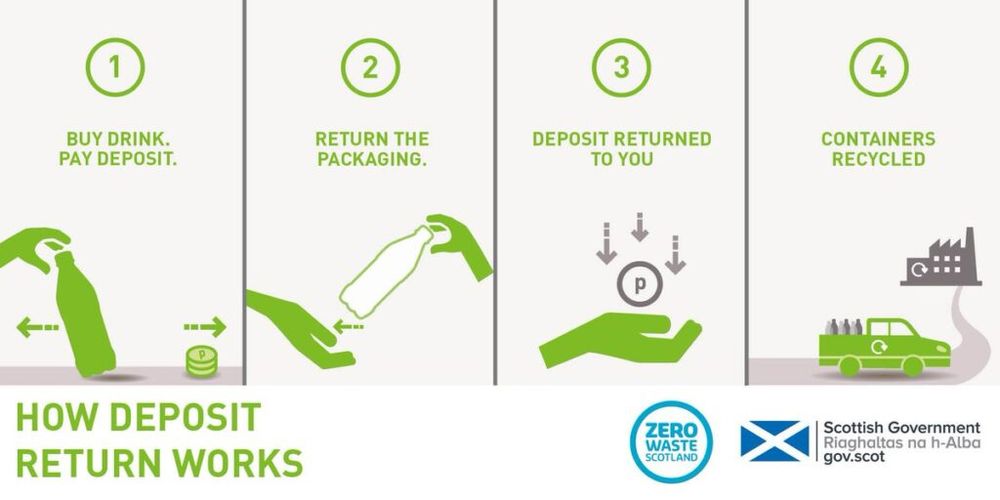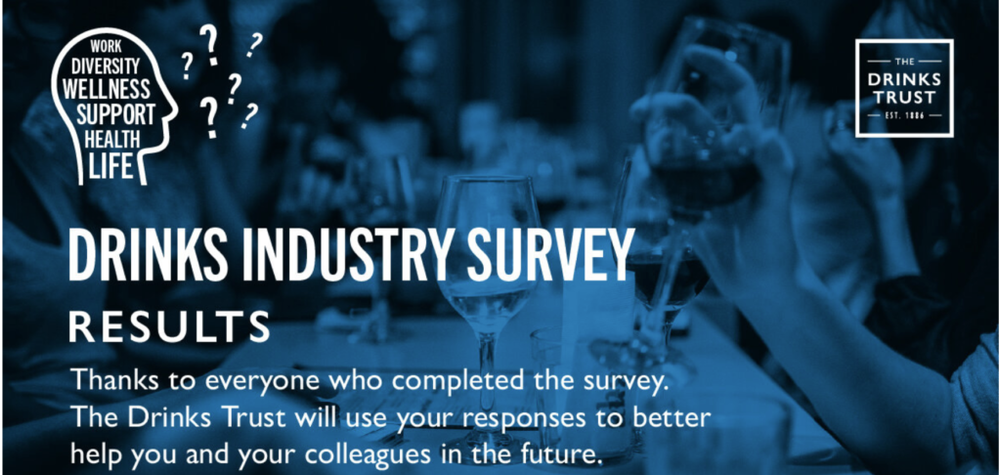Part 2 of our in-depth interview with the Wine & Spirit Trade Association’s Miles Beale, moves on from the pressing issues of Brexit and Covid-19 to look at the longer challenges facing the drinks industry. You can catch up on Part 1 of our interview here.
It might seem from the outside that the life of the chief executive of the WSTA is lurching from one political issue to another, forever revising, reviewing or drawing up your next lobbying campaign to convince the government to cut, refine or change a particular law or piece of policy.
But it is also thinking about the long ball game too. About the actions, the strategy that needs to be be put in place today if it is going to have an impact further down the line, be it later this year, next year, a decade or even 30 years from now.
Those are the long term challenges that any responsible trade association also needs to be concentrating on, stresses the WSTA’S Miles Beale, as we explore some of the longer term issues, challenges and opportunities facing the UK wine and spirits industry.
Everything’s gone green
(Click here for Miles Beale on WSTA playing a key role in promoting environmental steps in the drinks industry)
First up is the green agenda and why Beale strongly believes the drinks industry needs to focus its corporate responsibility efforts more widely, and more firmly, on to what it is doing to truly live up to its environmental and sustainable challenges. If it doesn’t then it will quickly find itself on the back foot, and trying to catch up with a government that is clearly going to make the environment one of its flagship policies in 2021, a year in which it is set to host both the G7 summit in June and United Nations Climate Change Summit in November.
“We are about to enter a perfect positive agenda,” says Beale.
First up on the political green agenda is the much touted Deposit Return scheme, which the WSTA, in theory, is in favour of – but not for glass and not in the “hasty” and potentially environmental harming way it is currently being proposed in Scotland.
The way that scheme is being set up, particularly in terms of how glass is treated, could actually make the situation worse not better by undermining recycling outcomes, claims Beale. Instead he argues the drinks industry should be driving a more “environmentally forward-thinking” approach that makes use of initiatives and technologies that are already being used.
Like having a QR code applied to a glass bottle that a consumer could recycle from their home rather than having to go to a dedicated recycling facility, which, he adds, has its own environmental implications in itself.
“If you are going to do DRS, think it through and do it differently to the way the Scottish government is proposing, particularly for glass, which is where our industry’s expertise lies. That is going to be vital,” he says.

The WSTA is making the case for the rest of the UK not to follow Scotland’s planned Deposit Return Scheme
The drinks industry, and wine in particular, has a particularly strong story to tell about the environment steps it is taking, particularly if there can be a co-ordinated voice between major producers, winemakers, distributors, retailers and operators, he claims.
It’s potentially where the WSTA can play its part, he adds. “Part of our role is to say this is what we should be thinking about, looking at and improving,” he says.
It has already produced a document that brings together best case studies from across the industry showcasing what different types of companies are doing on environmental change.
The challenge now is how you bring all those activities together under one industry movement or set of actions. To use that movement to talk to the government so that it introduces targets that are based on what can be achieved.
There needs to be actions for the long term, argues Beale, where the onus is on “looking 20 to 50 years ahead” and the steps needed to get there.
Technology also has a much bigger role to play. Take the issue of providing more information to consumers on calorie and nutrition labelling. Beale urges the wine and spirits industry to get ahead of the debate and start providing this information online, so that consumers can go and find out more about what they are drinking. This would be a much more effective, and thorough, approach to having to provide very basic information on the actual label – and certainly more future proof too, he adds.
For wine it makes even more sense as it can be adapted vintage to vintage. “We need to go online earlier.”
Supporting diversity and inclusion
(Click here for Miles Beale on the need for an industry plan to tackle diversity and inclusion)
Diversity and inclusion should also very much be part of the drinks industry “responsibility agenda,” says Beale. He concedes it is a “thorny issue” to tackle for “any industry” and often the issue is highlighted due to “bad” rather than “good examples”. So we need, he says, not only to tackle the underlying issues, but to start promoting and talking more about the good things that are taking place and that we can build on.
The WSTA is actively talking to what he refers to as other “arterial” drinks organisations, like the various educational bodies, but particularly The Drinks Trust, to see what they can do collectively on these key issues. He certainly believes they all share a responsibility to do so.
He is very pleased The Drinks Trust is “leading” that debate which is being structured around “what is it we think we think we are all wanting to do, what’s the agenda, and who’s best placed to lead on what”. That way they can each “contribute” to what needs to be an “industry effort”.
By working together they can also hopefully avoid “lots of really good initiatives falling foul of initiative-itis” where are there are too many steps being taken that overlap and are essentially the same.
Instead it needs an “industry plan” that they can all move forward with. Quite what that plan is remains to be discussed, and will probably mean bringing in expertise from outside to help shape and guide it, he adds.
It is also about listening to what the industry and its people want, stresses Beale. That is what The Drinks Trust’s industry survey it held last autumn was all about. To give people in the drinks industry the chance to share their thoughts and experiences and what they would like to see happen.

There is then the opportunity to decide which body is best placed to provide the support and information needed, but equally he is “nervous” about making any sort of direct promises in advance of discussions – because it needs to a joint industry effort and he does not know where that “consensus of opinion” might sit on what an industry programme should prioritise.
“The WSTA will certainly be contributing to an industry effort and providing a platform for more discussion on diversity and inclusion,” he says.
It’s an area it has also looked to address at its recent industry summits.
He also believes an “action plan” that sets out what the industry can do – with the opportunity for businesses and people to respond and add to.
But the opportunity is there for the WSTA, Drinks Trust, WSET, IMW and the wider drinks industry to potentially set out an “action plan” where it sets out some “achievements” for businesses to aim for, which might eventually include “targets,” but stresses it needs to be done in a way that takes the industry with them.
“I would definitely be worried if this was stunted at birth by a fear of doing the wrong thing. I think it is much more about practical initiatives, building on things that are already there and trying to identify priorities from which the widest possible benefits for the industry are available.”
International role
Beale also recognises the need for the WSTA as a trade body to widen its own horizons again and switch from what understandably has been a very UK-centric strategy over the last two years, dealing with the immediate concerns and needs of Brexit and then Covid-19, to looking again at its role, and influence, on the international agenda. Particularly now that the UK has re-joined the OIV.(International Organisation of Vine and Wine).
Which means re-engaging far more wine bodies and groups across the EU and around the world, which will fall into place the more the focus switches on what free trade deals are going to be possible.
For example, the WSTA team is looking to working with the European wine trade associations on what they can now do together proactively to “improve” on the trading “baseline” that everyone is now having to grapple with since January 1.

WSTA will be playing a key role in listening to the drinks industry and making the case to governments both in the UK and across EU, through international wine bodies, on how new trading regulations can be improved – and in particular ensuring it is all electronic
The first priority is having electronic forms for EU wine imports in place by the July deadline – or its deferral until it can be done electronically.
He welcomes the opportunity for both sides to start pushing and cajoling their politicians to make the changes the trade needs and wants. He certainly expects politicians to be in a far more “co-operative mode and wanting to improve things” than they have been.
High on the international agenda will be re-forging close ties with Australia and New Zealand, that look the most likely to be able to sign a major free trade deal with the UK during 2021.
Of the two Australia is strategically further down the line, and is also closer to agreeing with the EU a “better free trade agreement”. So an opportunity for the WSTA to be working in hand with Australian Grape & Wine to lobby for a deal that works well for wine for both sides – and “that our politicians are hearing some of the same arguments”.
“There is no reason,” adds Beale, “for wine tariffs” between Australia and the UK. Equally there is now a new “baseline” in place that means full VI-1 forms should no longer be needed for Australian wine coming to the UK – and potentially for their re-export the EU either.
After Australia, a New Zealand free trade is also a fair way down the line, and then there is talk of the US and perhaps South Africa after that – all good wine trading countries.
“The WSTA will be much more outward looking and will be very focused on improving trade rather than try to see trading sinmply continue,” he says. “It’s now a much more positive agenda where we can work a lot more collaboratively,” with bodies such as Comité Vin and Australian Grape & Wine.
“We are going to be increasingly outward looking.”
Increasing members
(Click here for Miles Beale on attracting a more diverse membership and why independent merchants are key)
We saw in Part 1 of our interview how important it was in 2020 for the WSTA to reach out and work with areas of the wine trade where it traditionally has not been strong – with the fine wine sector really coming on board due to the potential danger of what introducing VI-1 forms could to fine wine merchants.
Increasing members as a whole is always an issue, a challenge and an opportunity for the WSTA. It was an area that Michael Saunders, chief executive of Bibendum, was keen to really shine the light on when he came in as chairman in 2019, frustrated, in part, that not as many wine companies were WSTA members as you might imagine.
One sector of the trade that has been a particularly hard nut for the WSTA to crack has been independent wine merchants, with few retailers, up to now, willing to pay the membership fee.
It has not stopped the WSTA doing considerable work during 2020 on independents’ behalf. Beale says he is particularly grateful for the time, work and support it has had from leading independents like Hal Wilson of Cambridge Wine Merchants, which has resulted in an upswing in independents joining. All keen to see the avoidance of VI-1 forms for EU wines (and later total abolition), and needing support on trading up to and through Brexit.
The new complex paperwork that is now needed for independents to trade directly with EU wine suppliers has also made WSTA membership potentially more attractive, claims Beale.
“2020 demonstrated that the WSTA is doing something that is directly relevant to the health of an independent or fine wine business,” says Beale. “Where we have got to now is not the end outcome. In most cases it is more complicated and costly than it was, but it’s not as bad as it would have been if some of our lobbying had not been successful.”
But we are only at the beginning of the process and there are so many more battles to be won and hurdles to get over, he stresses. Particularly in making customs requirements electronic.
“If you are an independent or fine wine business, I would say you need us to be successful in that. And in order for us to be successful we need you to talk to us, so we understand your business, so we are representing your views properly. We need you to write to your MP and we need to co-ordinate to do this. But we also need a small fee from you, otherwise we simply can’t service you. And that’s where I think the future relationship between the WSTA and independent businesses lies.”
(Click here for Miles Beale on WSTA’s role and its significance for wine merchants & the wine and spirits industry)
All its lobbying work in 2020 seems to have paid off with a strong 15% rise in membership last year. Whether that is a long term increase remains to be seen, says Beale, aware that some companies may have joined to help them through the Brexit transition. There is also the reality that some companies will not have survived Covid-19 and some that have may not see trade association membership as a priority whilst they recover.
But understandably he thinks the WSTA has made a “pretty good case” for membership during 2020 and the coming months and years will only see more issues come to the fore, like VI-1 forms, where its ability to lobby effectively, through the diversity of its membership, will be crucial.
Which is why the WSTA is so keen to work with and recruit more independent wine merchants to its fold. It held a number of webinars and online zoom sessions in 2020 with independents during 2020. That work, he says, needs to continue in earnest throughout 2021 as the true picture of trading post Brexit is better understood, he says.
Only by working with more independents will the WSTA truly understand the business issues they face and how it can help them, he adds.
Carry on working
Beale also shared what it has been like as a business leader trying to run a major trade association when for the majority of the time we have been at home. For as he says the WSTA has probably never been busier than it was during 2020, but had to manage with everyone working remotely.
“Re-creating a team dynamic was a real concern for me early on” in the first lockdown, admits Beale.
It has found a mixture of short, sharp zoom calls and using a team instant messaging system has helped create a “very different” but also a “close” way of working in order to keep on top of what has been needed for its members.
But equally he has been worried about how well individual members of the team have been able to cope and done what he can to ensure they are not spending “15 hours a day in front of a screen”.
“I have been really keen to say to them you have permission to walk away from your screens, and get out. In fact I would like you to, please do it and don’t work long hours,” he explains.
Beale is also quite sure this period will change working practices for ever and that it won’t be as important for everyone to be in the office every day, or even expected. “I also don’t think the office is dead by any means at all,” he adds and he has certainly missed the benefits of working as a team as one in an office. “It will just be more laizzez faire about when you choose to do that.”
Wherever Beale and his WSTA team get the chance to work in 2021, the lobbying effort and the behind the scenes negotiating, cajoling and building relationships with key allies will continue. For 2021 looks like being just as tumultuous, unpredictable and game changing as 2020 was.
- If you would like to find out more about the WSTA and what it can do for your business then go to its website here https://www.wsta.co.uk/my-profile and contact Jess Parker using info@wsta.co.uk or +44 (0) 20 7089 3877.






























